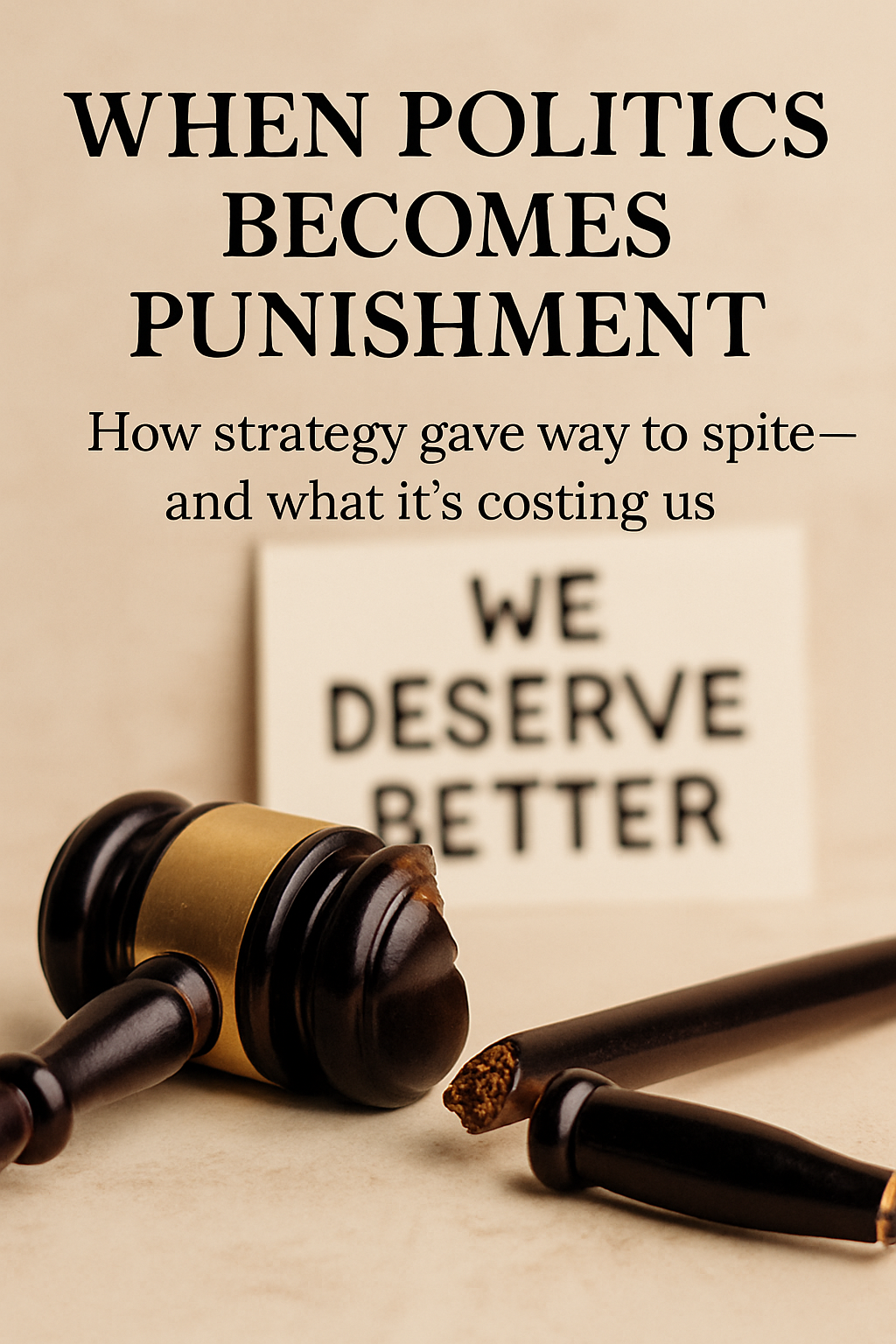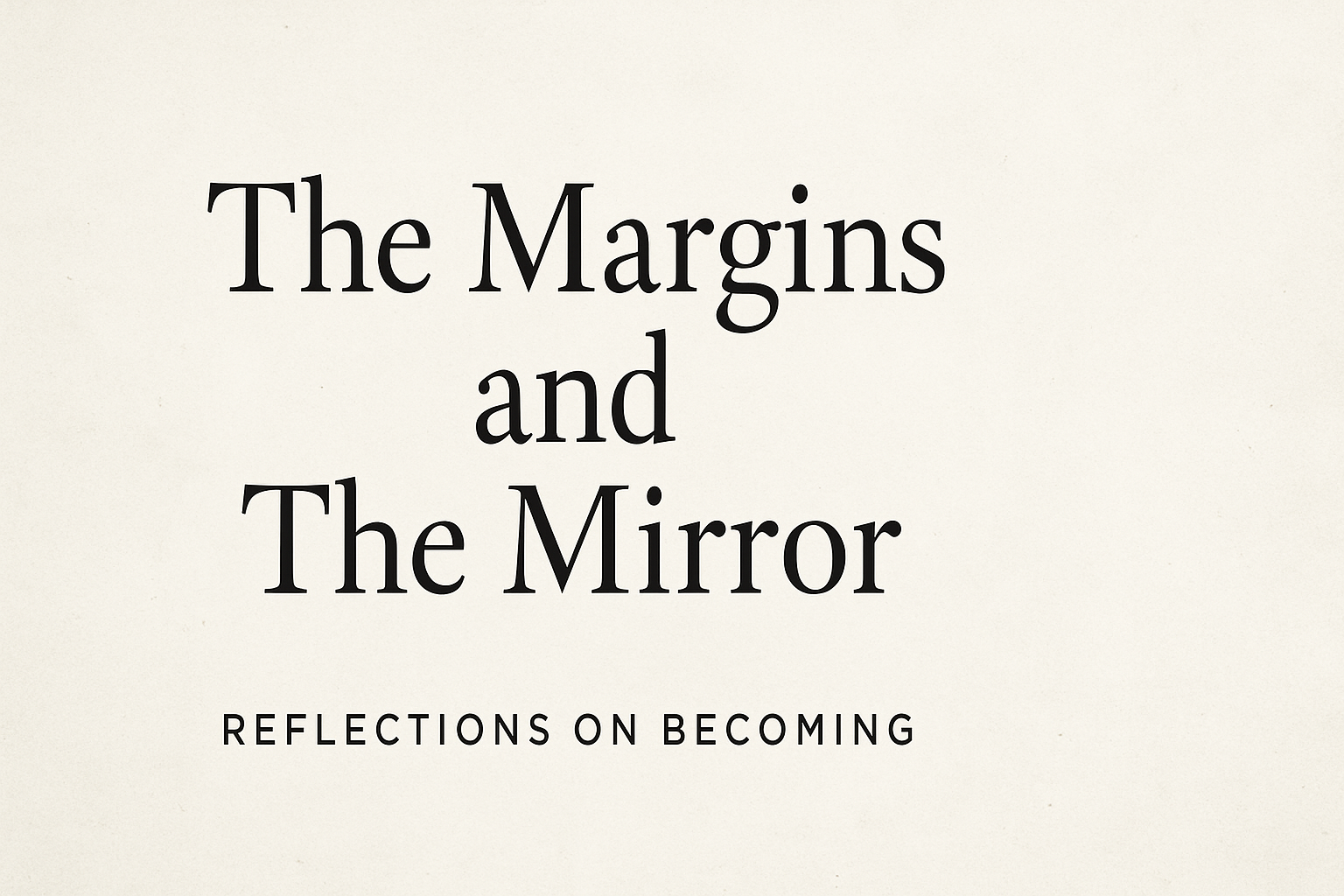When Politics Becomes Punishment

How strategy gave way to spite—and what it’s costing us
There was a time when politics—however messy, manipulative, or mercenary—still required a plan.
A vision. A coalition. A platform.
But today, we are watching the final unmasking of a new kind of politics: one not rooted in governance or persuasion, but in punishment. It’s not about what can be built—it’s about who can be broken.
Pain, by Design
We now have elected officials who run not on the promise of service, but on the spectacle of cruelty.
Policy has become performance. Governance has become grievance. And punishment is no longer the byproduct of political ideology—it’s the point.
Every headline is a provocation.
Every law a sword.
Every press conference a threat.
We’ve entered an era in which harm is not an unfortunate consequence—it’s a campaign strategy.
From Strategy to Spite
This shift isn’t accidental. It’s systemic—and it’s deeply familiar.
Throughout history, when leaders lose moral authority, they often reach for fear. They weaponize difference, manufacture crisis, and sell retribution as redemption. It plays well on TV. It dominates the algorithm.
And it is deeply effective—in the short term.
But eventually, the citizens caught in the crossfire begin to ask:
“Who exactly is this pain for?”
When Dissent Becomes Disloyalty
A functioning democracy depends on the ability to disagree, to push back, to demand better. But when politics becomes punishment, disagreement is labeled treason. Questioning authority becomes un-American.
We’ve seen this before.
In regimes that imprison journalists.
In governments that silence educators.
In systems that criminalize identity.
And now we’re watching its seeds take root here—fueled not just by bad actors, but by a public too exhausted, entertained, or afraid to resist.
We Don’t Need More Performers. We Need Public Servants.
The truth is: some politicians don’t want to govern. They want to punish. They want to be adored by their base, feared by their opponents, and untouchable by accountability.
But democracy doesn’t survive on dominance. It survives on dialogue.
On dissent.
On shared stakes.
On rules that apply even when power shifts hands.
We forget that at our peril.
So What Now?
We must refuse to applaud cruelty just because it’s aimed at someone else.
We must stop mistaking performance for principle.
And we must demand more than the politics of pain.
Because eventually, punishment finds its way to everyone.
Even the faithful. Even the silent.
Even the ones who thought it was for someone else.
🔎 Explore more essays in the Politics series

